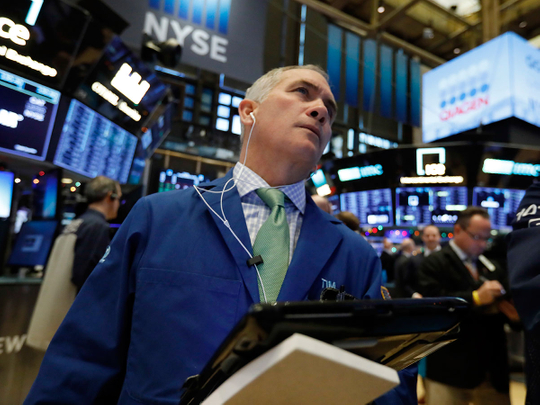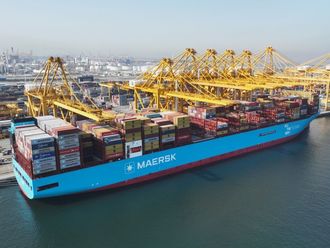
Dubai: At the latest edition of the Arab Strategy Forum held on Monday, global economist Vikram Mansharamani shared his views on whether the world is heading towards an economic recession and whether this presents “an opportunity, a risk or a threat”.
Global recession was last seen during the 2008-2014 period. With the economy expected to record a 3 per cent growth this year, the lowest level seen since 2008, analysts have widely warned against the immediate threat of a highly disruptive global recession.
“We live in a world where we have been hit by waves of social unrest, populism, nationalism, asset bubbles, trade wars, currency wars — we have a chaotic environment,” Mansharamani said, adding that the root causes for all of these include oversupply in the field of technology and energy, and ageing of the world’s largest economies that prompt consumers to spend less.
“When we put these together we have global deflationary pressures,” he said. “So in a world where there is not enough demand and too much supply, countries compete using currencies to boost exports, resulting in a winner-take-all market, inequality and social unrest.”
This is tailed by nationalism and populism, with people being led to assign blame, followed by protectionism and taxes on imports, Mansharamani said, adding that this triggers the numerous trade wars we see today not just between the US and China, but also between Korea and Japan. “But this is history, some would say that’s how we got here. The real question right now is to figure out whether there is a recession coming.”
A number of industry-wide gauges indicate that a global economic recession could be as less as 24-36 months away, the economist said. Mansharamani explained how declining growth and bad debt in China, US Fed interest rate cuts, rapid population growth exasperating the problem of oversupply, issues in the technology sphere where cheap capital has enabled non-prudent business models, are all signs that the economy is facing an imminent threat of recession.
“The global economic uncertainty does not limit to just US-China, but ripple effects extend into US-Europe, Japan-Korea, which are paralysing corporate boardrooms of multinational companies as they are no longer investing the way they were,” Mansharamani said. “Global supply chains are shifting away right now, companies are saying that they cannot have sole supplier risk in China or others.”
“So when we put all these pieces together, it shows that in the next 24 months there is a high propensity or high probability that we will face the heat of a recession,” he said, adding that these signs, which usually come 12-18 months before we have a recession, show that the economy is within 36 months of a downturn.












